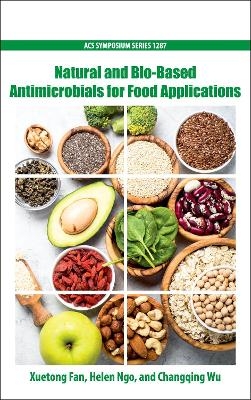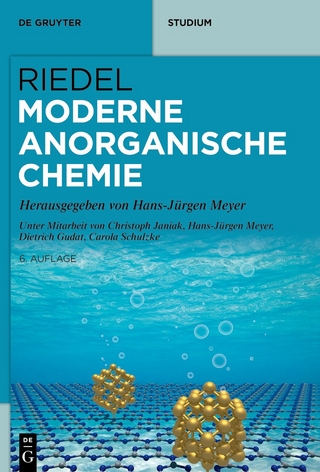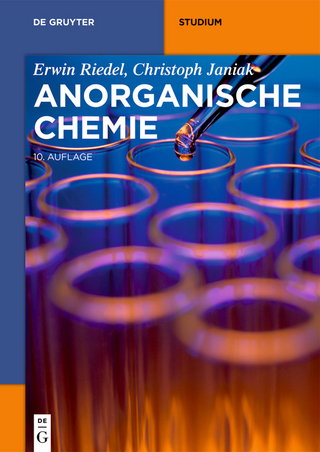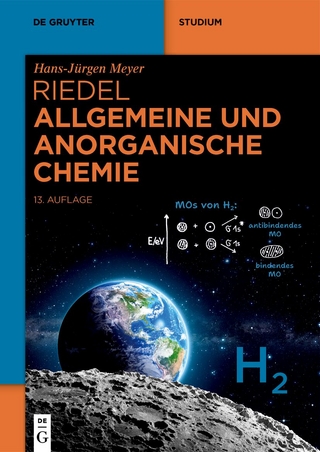
Natural and Bio-Based Antimicrobials for Food Applications
Oxford University Press Inc (Verlag)
978-0-8412-3305-8 (ISBN)
agricultural industries are experiencing a lack of potent antimicrobial agents to secure the safety and maintain the quality of food products. Some synthetic preservatives may produce harmful by-products and damage the environment. There is also increasing incidence of antibiotics-resistant pathogens which
has drawn great concern from the scientific communities and public health professionals. Therefore, there is increasing interest in the use of natural antimicrobials to enhance microbial safety, reduce spoilage and extend the shelf life of food. Natural antimicrobials are from plants, microorganisms and animals. They cover a wide variety of compounds including phenolics, terpenes, bacteriocins, peptides, proteins, natural polymers, fatty acids (lipids), and organic acids.
Overall reviews of well-known natural or bio-based antimicrobials are first presented. The book then discusses antimicrobials of plant sources and their applications in foods and animal health. A number of chapters address the combinations of natural antimicrobials with non-thermal processing technologies to achieve additive and synergistic effects. The use of natural antimicrobials in packaging and coating, as well as both well-studied and novel biobased antimicrobials are discussed.
Furthermore, the needs for toxicological evaluations of natural and bio-based antimicrobials are presented and protocols are recommended. Moreover, there is discussion in many of the chapters on the modes of action, mechanisms, and industrial aspects of applying natural or bio-based
antimicrobials.
Dr. Xuetong Fan serves as a Lead Scientist and Research Food Technologist at USDA, ARS, Eastern Regional Research Center, Wyndmoor, PA, where he works on projects involving development of interventional technologies to enhance microbial safety of food. Dr. Fan functions as a project leader in the area of food quality and chemistry, develops/modifies food safety intervention technologies and treatments (including natural and bio-based antimicrobials), evaluates their effects on pathogen reductions and all aspects of food quality (appearance, texture, nutritional, chemical and sensorial quality) and develops innovative research approaches to minimize quality loss and accumulation of undesirable chemicals. Dr. Fan has over 25 years research experience in the fields of food quality and safety, food irradiation, postharvest physiology, controlled and modified atmosphere storage, and nonthermal processing technologies. Dr. Fan has authored and co-authored over 300 scientific publications, which consist of more than 150 peer reviewed scientific articles, >50 book chapters/proceedings, and >100 abstracts, and co-edited four books. Dr. Helen Ngo serves as a Research Chemist at USDA, ARS, Eastern Regional Research Center, Wyndmoor, PA. Her research interest lies at the interface between inorganic and organic chemistry with a particular focus on designing highly efficient and environmentally benign catalysts. She is a team leader on the projects in developing new technologies and materials from farm products. The impact of her work has resulted in cooperative agreements with national and international companies. She is the recipient of the USDA's Early Career Scientist of the Year award in 2010 and American Oil Chemists Society's Young Scientist Research award in 2014. To date, Dr. Ngo has authored and co-authored over 50 scientific papers, 2 book chapter, 3 U.S. Patents, and 2 patents pending. Dr. Ngo has also authored over 30 scientific abstracts for oral technical presentations. Dr. Changqing Wu is an Associate Professor and Food Toxicologist at Department of Animal and Food Sciences at University of Delaware. Her research program has focused on the characterization and application of bioactive phytochemicals. Specifically, her research efforts have focused on three areas: 1) enhancing food safety and quality through the novel application of antimicrobials or pulsed light technology, 2) improvement of human and animal health by dietary bioactive compounds, and 3) utilization of bioactive compounds in non-food applications. To date, she has authored and co-authored over 30 peer-reviewed scientific articles, and over 40 scientific abstracts for technical presentations.
Preface .............................................................................................................................. ix
1. Natural and Bio-based Antimicrobials: A Review ............................................... 1
Xuetong Fan, Helen Ngo, and Changqing Wu
2. Natural Food Antimicrobials: Recent Trends in Their Use, Limitations, and
Opportunities for Their Applications in Food Preservation .............................. 25
Thomas Matthew Taylor
3. Plant-Based Antimicrobials for Clean and Green Approaches to Food
Safety ....................................................................................................................... 45
Sadhana Ravishankar
4. Organic Acids, Detergents, and Their Combination for Inactivation of
Foodborne Pathogens and Spoilage Microorganisms ......................................... 63
Dong Chen and Tong Zhao
5. Improving the Microbial Food Safety of Fresh Fruits and Vegetables with
Aqueous and Vaporous Essential Oils .................................................................. 87
Juan Yun, Changqing Wu, Xihong Li, and Xuetong Fan
6. Antimicrobial Activities of Olive Leaf Extract and Its Potential Use in Food
Industry ................................................................................................................. 119
Yanhong Liu, Lindsay C. McKeever, Yujuan Suo, Tony Z. Jin, and Nasir S. A. Malik
7. Control of Foodborne Pathogens by Hops Beta Acids in Food Systems ......... 133
Cangliang Shen
8. The Use of Natural Antimicrobials Combined with Nonthermal Treatments
To Control Human Pathogens ............................................................................. 149
Behnoush Maherani, Samia Ayari, and Monique Lacroix
9. Packaging Methods To Effectively Deliver Natural Antimicrobials on
Food ....................................................................................................................... 171
Tony Z. Jin, Mingming Guo, and Wenxuan Chen
10. Antimicrobial Potential of Sophorolipids for Anti-Acne, Anti-Dental Caries,
Hide Preservation, and Food Safety Applications ............................................ 193
Richard D. Ashby, Daniel K. Y. Solaiman, Xuetong Fan, and Modesto Olanya
11. New Classes of Antimicrobials: Poly-Phenolic Branched-Chain Fatty
Acids ...................................................................................................................... 209
Helen Ngo, Karen Wagner, Alberto Nuñez, Jianwei Zhang, Xuetong Fan, and
Robert A. Moreau
12. Evaluation of Toxicity and Endocrine Disruption Potential of the Natural
and Bio?Based Antimicrobials ............................................................................ 223
Changqing Wu and Ying Peng
Editors' Biographies .................................................................................................... 243
Indexes
Author Index ................................................................................................................ 247
Subject Index ................................................................................................................ 249
| Erscheinungsdatum | 27.12.2018 |
|---|---|
| Reihe/Serie | ACS Symposium Series |
| Verlagsort | New York |
| Sprache | englisch |
| Maße | 160 x 235 mm |
| Gewicht | 558 g |
| Themenwelt | Naturwissenschaften ► Chemie ► Anorganische Chemie |
| Technik ► Lebensmitteltechnologie | |
| ISBN-10 | 0-8412-3305-5 / 0841233055 |
| ISBN-13 | 978-0-8412-3305-8 / 9780841233058 |
| Zustand | Neuware |
| Haben Sie eine Frage zum Produkt? |
aus dem Bereich


